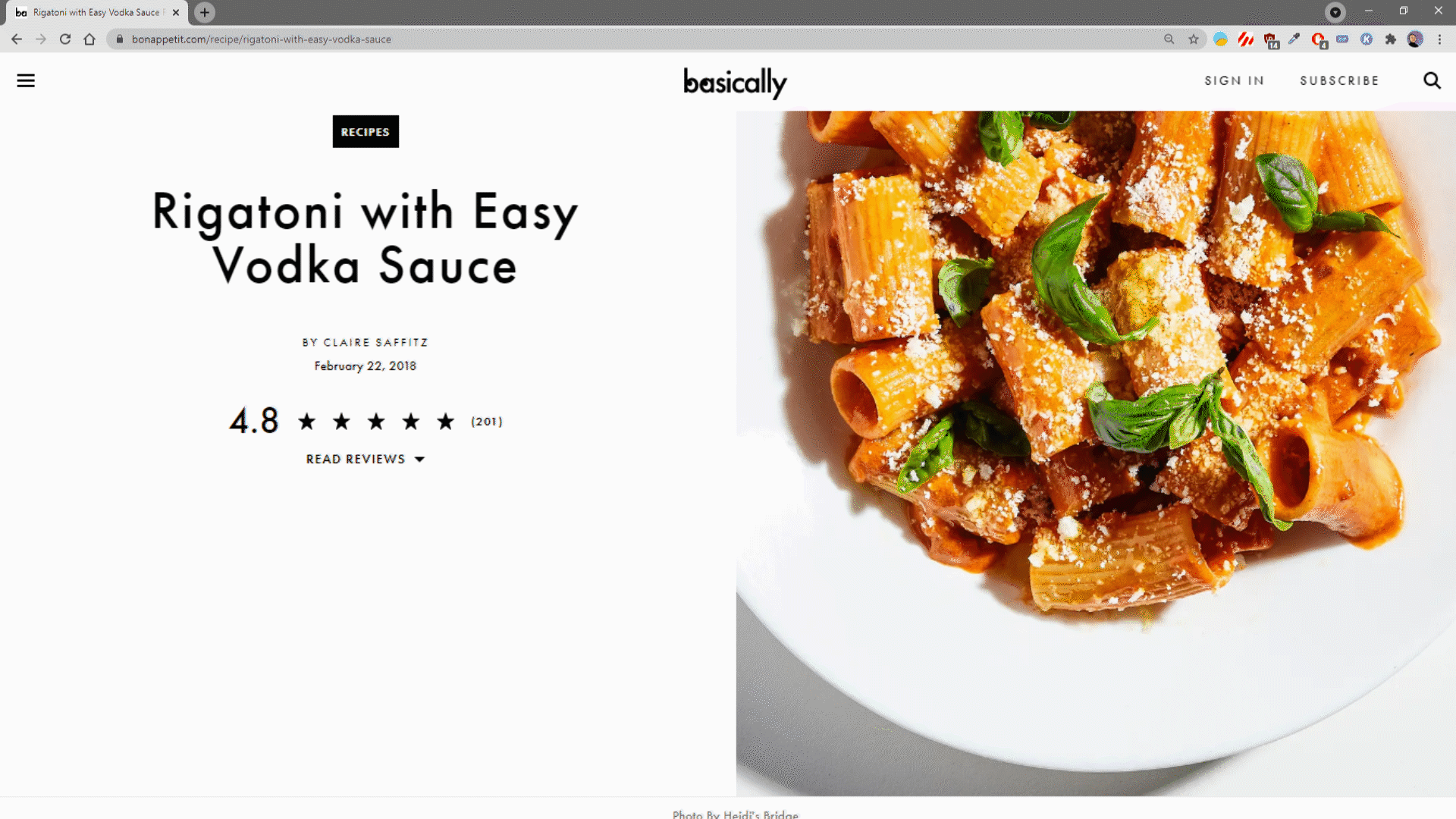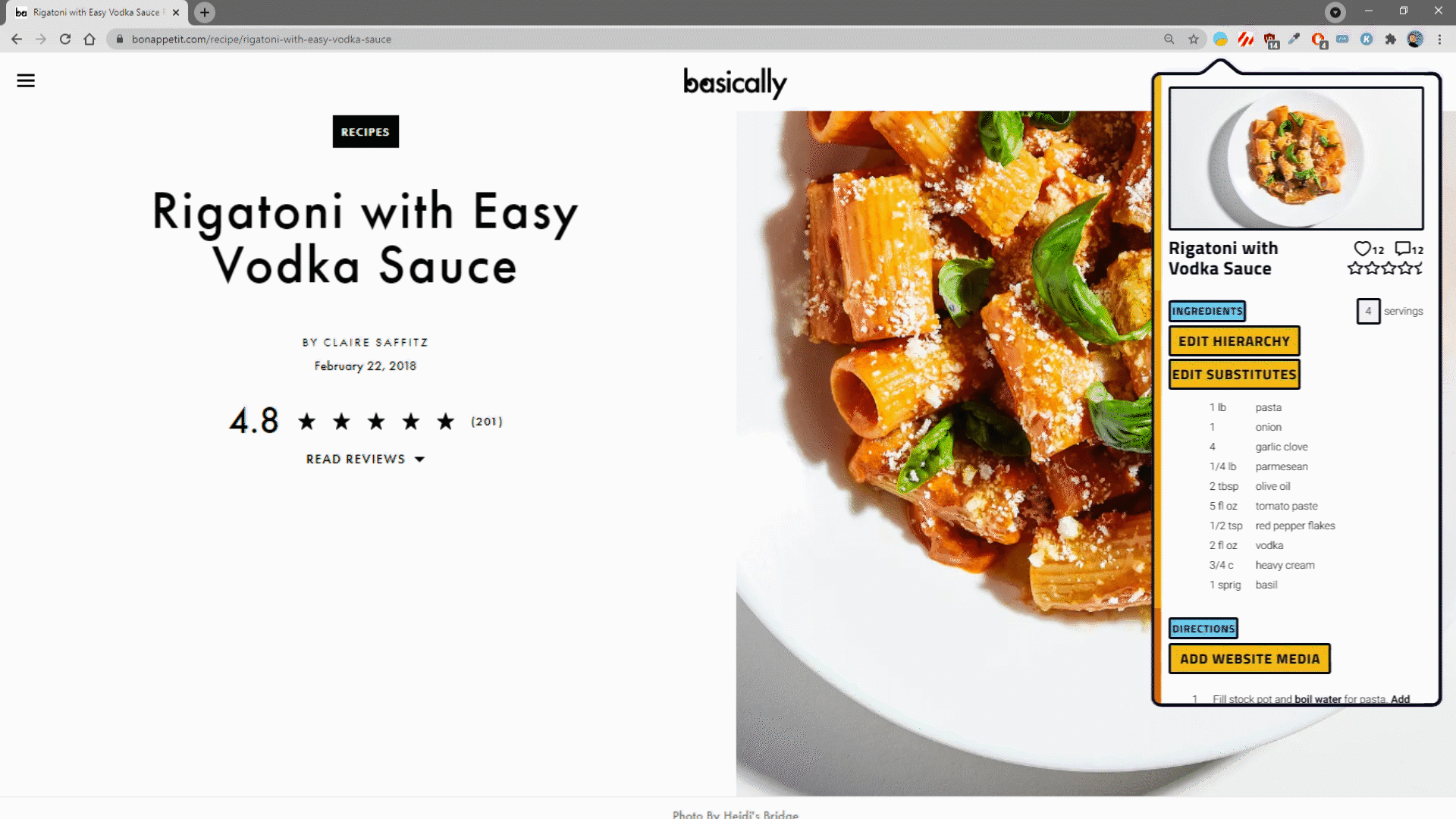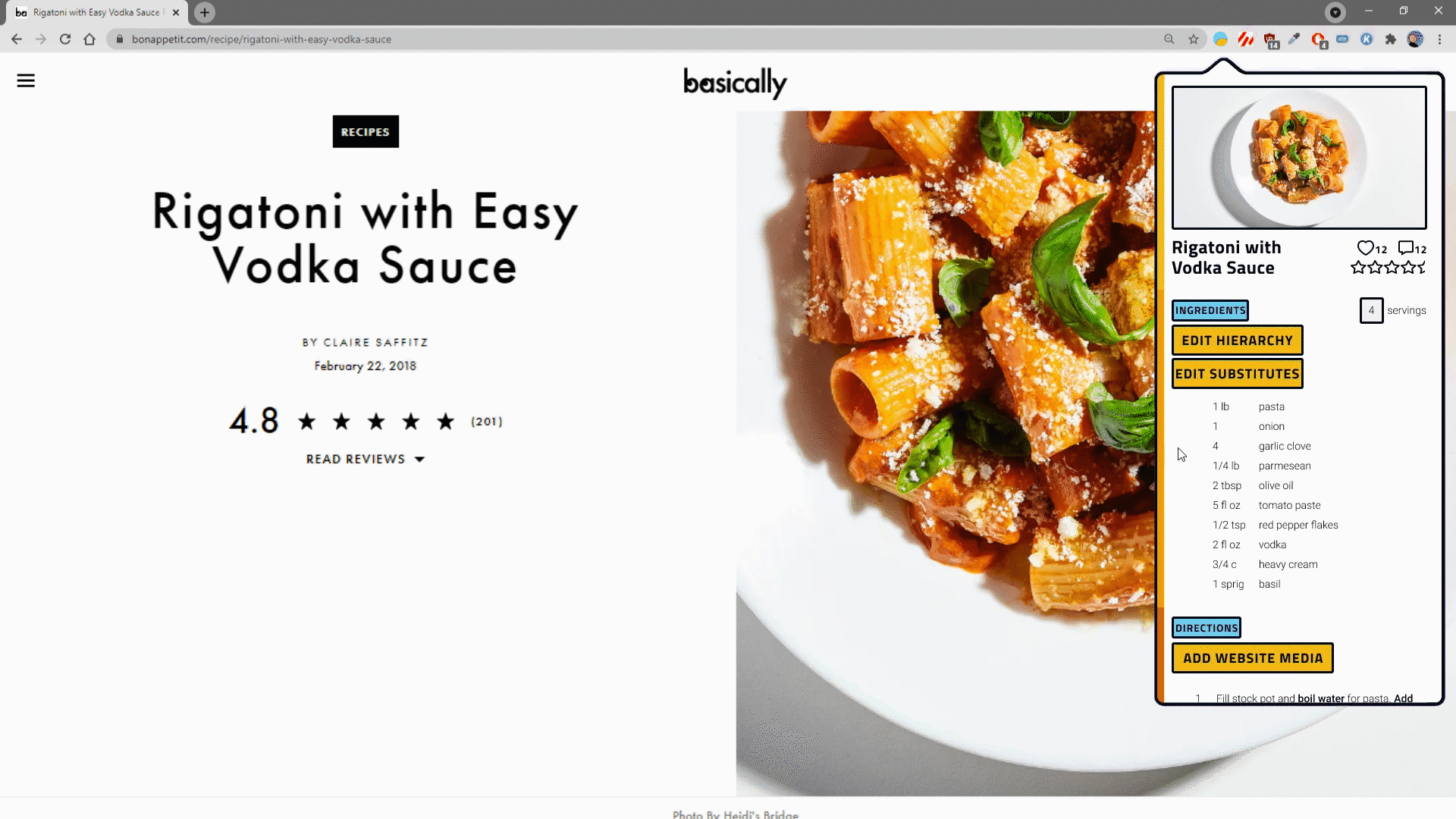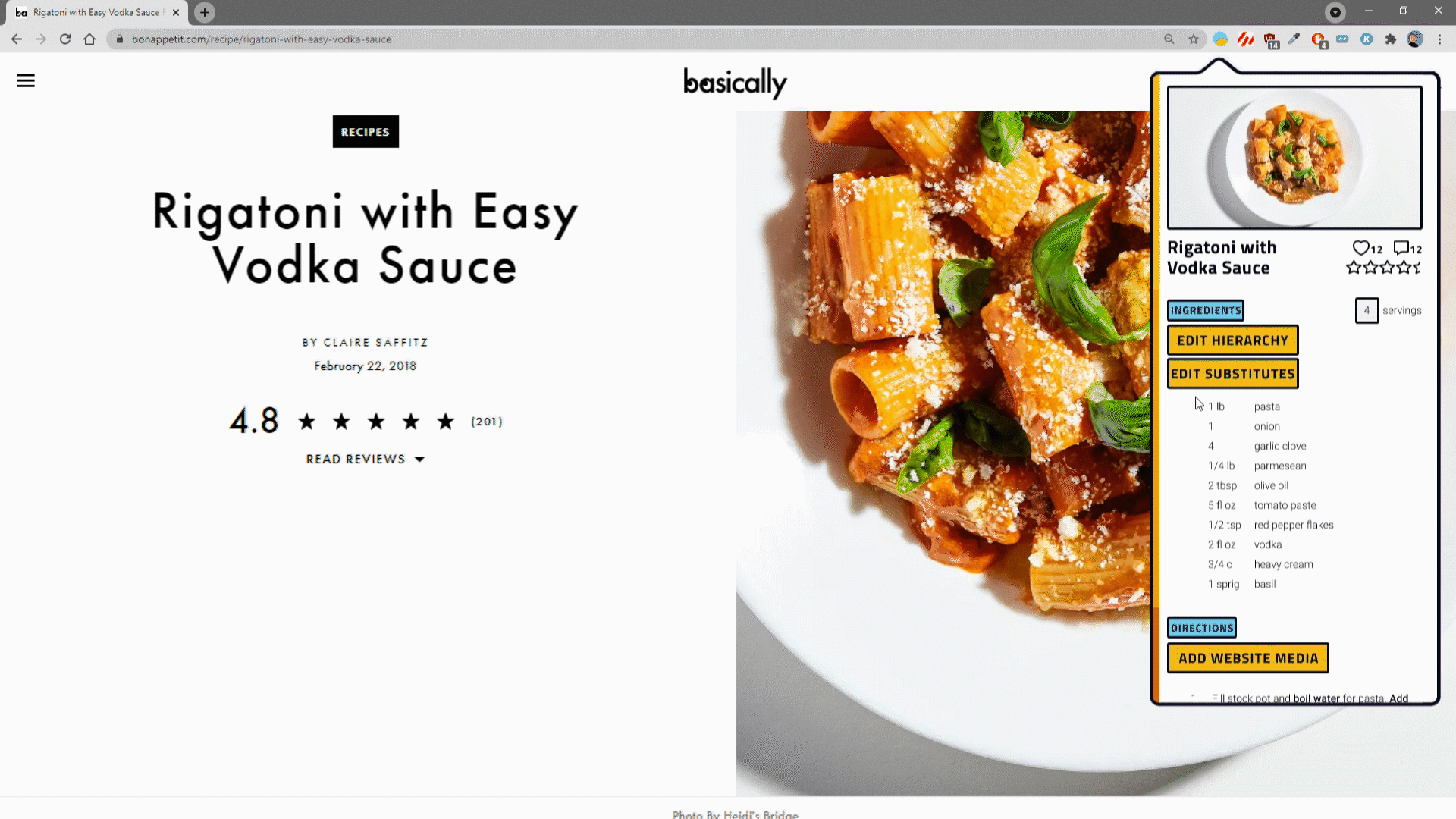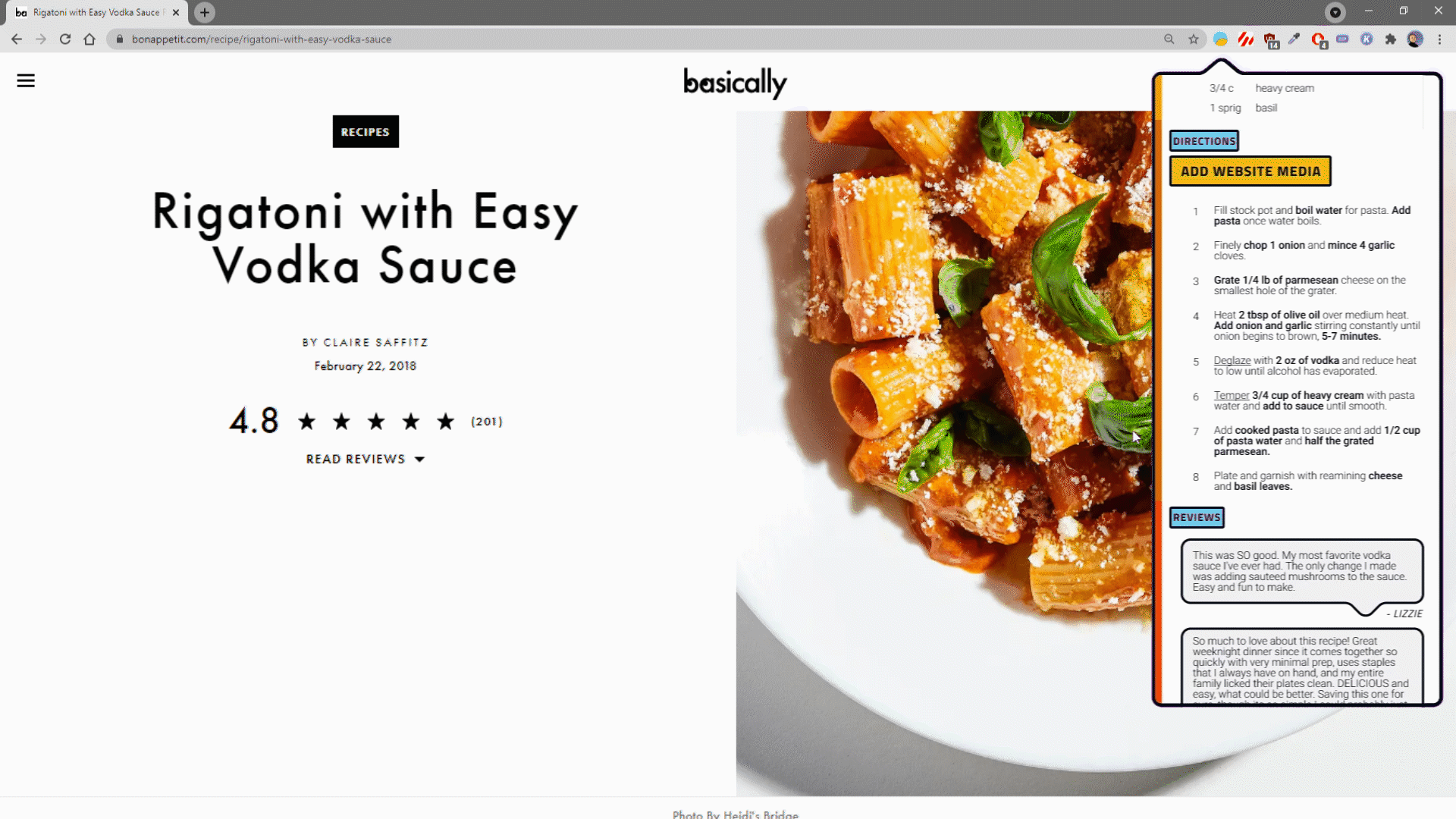
“While 25% of adults got sick of cooking in 2020…
30% of them found a new passion for cooking”
— acosta.com
COVID has caused Americans to drastically shift their eating habits. People everywhere are finding out they enjoy cooking, however resources to learn cooking are surprisingly outdated.
Modern day cooking apps on phones are not optimized for the user, with limited interactions for the user. Lamb Sauce streamlines the interactions between the user and the recipe, enabling them to make informed decisions and choices, allowing them to naturally improve their cooking skill in a friendly, fun way.
Research & Discovery
The consumer’s relationship with eating out and cooking.
We’ve reached a paradigm shift in how we spend money on food. Since 2015, sales in restaurants have been outpacing those of grocery stores. However, in 2020, restaurant were lucky to not lose money.
Post COVID, consumers are planning to eat out less for breakfast, lunch, and dinner. Younger people, especially, are planning to continue cooking with higher frequency.
Survey Results
How often do you make meals at home?
A majority of younger adults are cooking at least one meal a day in their home kitchen. Of this majority, a significant amount of responses say that only a few meals a month are not made at home.
What methods are you using to come up with a meal?
The same survey showed that most users are turning to convenient, fast methods like their phones or themselves when coming up with a recipe.
Rarely are they putting in effort to find recipes some other way.
Additionally, 66% of users simply used Google to find a recipe, in contrast to searching through specific websites or chefs.
Interviews
Users and Questions
Professional pastry chef
College student in an apartment
College student in a dorm
Home cook
How complex are the meals you cook?
What’s your favorite medium for recipes? Why?
What’s your approach for a new recipe? Are you meticulous and careful? Do you ever make edits to the recipe?
Have you ever realized you’re missing an ingredient or tool needed to cook?
Do you ever have trouble getting specific ingredients? Are there specific ingredients that you’ll spend extra money on?
What are some pain points while cooking from a recipe on your phone?
Pain points and insights from different recipe mediums
Video Recipes
“I like having the visual indicators that they show in the videos so that I can see if mine looks ok.”
— Professional Pastry Chef
“I just want a recipe and some instructions. I don’t need your background information and hearing the same tip about pasta water... the information in videos is just too spread out and not condensed enough.”
— Home cook
“I have to scrub through the video a lot while cooking and then I get food all over my phone.”
—College student in a dorm
Online Recipes
“I hate looking up recipes on my phone. My phone locks, I have to unlock it, then I have to scroll past ads and life stories. I just want the basic information.”
— Home cook
“I’m gonna admit it, I just scroll until I see the ingredients.”
— College student in an apartment
“I skim through the opening section to make sure that I read through all the tips and extra advice”
—Professional Pastry Chef
Physical Recipes
“I love text recipes. All the information is right there on the page, with useful information written right beside it.”
— Homecook
Key Insights
-
The user needs information to be more streamlined while cooking.
Of all the recipe mediums, there’s no one medium that is most convenient.
While there are some combinations available digitally, none of these work as a full replacement for another method.
-
Recipes should be adaptive to the users needs.
Everyone uses recipes differently.
While they can be used to completely guide the user to a fully cooked meal, recipes are also often used as simply reference points for things like, how long to cook a chicken, or what temperature are you supposed to bake a lasagna at.
Users are having to work too hard when the recipes should be doing all the work.
-
Users need something to help decrease cognitive load while cooking.
When following recipes, the user is constantly juggling various mental and physical tasks to ensure that everything is working.
It’s not rare, especially when cooking several courses, that the user forgets something if it’s not right in front of them.
Ideation and Directional Research
Design Goals
Must Have
App must streamline information to the user
Recipe should have instructions within easy access
Should Have
App should decrease cognitive load while cooking
Require few interactions by user
Nice to Have
A feature to anticipate and easily adapt to a user’s cooking needs
Ideation
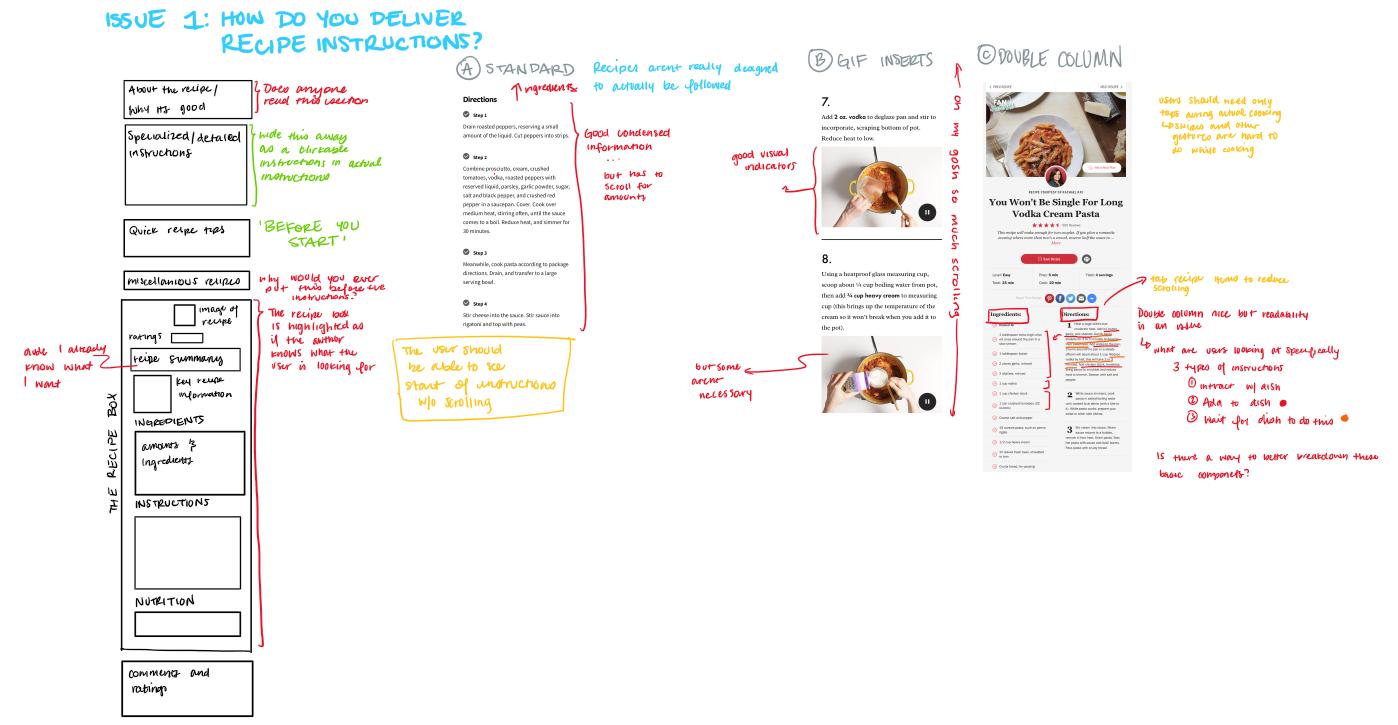
How do other apps and website present their recipes?
Theres a million ways to find recipes online. There’s recipe converters, smart recipes, websites, apps, videos, and the entire space is saturated in different recipes.
However, none of these apps leverage a elegant balance between utility, aesthetic, and information.
Apps are generally limited in their interactiveness, and oftentimes focus on aesthetics over utility while cooking.
Furthermore, many formats are clustered with too much distracting information.
User Feedback
After receiving feedback from users on the different features, I came up with 3 major insights.
users want to easily customize their recipe layout
users enjoy being able to change a recipe
well formatted instructions go a long way
Extrapolating from this, I prioritized 4 features that I would work to integrate together into the app. These 4 features were chosen based on user feedback, feasibility, and integration.
Ingredient Hierarchy
Substitutions
Cooking Glossary
Suggestions
Concept Prototype
Branding
I wanted an app that seemed approachable, fun, and friendly, and to move away from more sophisticated, intimidating design in order to be inviting to users who may not be confident in cooking.
The name ‘Lamb Sauce’ was chosen for being well recognized from Gordon Ramsey, identifying it as a cooking app. The comedic origins of the phrase also gives the app a fun twist.
Menu Navigation
Quickly navigate through the app menu to find something to cook.
Streamlined Instructions
The recipe is streamlined to fit as much information as possible without overwhelming the user.
Users from here can start cooking immediately or toggle various tools on or off depending on what they want.
Informed Substitutions
Additionally, the user can directly look up ingredient substitutions for more important ingredients.
Users simply touch and hold on a specific ingredient to see substitution options, as well as a short description to understand how this will change a recipe
Media Toggle
By default, images and videos are turned off, but if a user wants to visually compare their meal to the recipe, they can simply quickly enable images and videos in the instructional steps to check.
Quickly look up cooking terms
There’s often specific terminology used while cooking that users are unfamiliar with. By touching and holding on underlined terms in the instructions, the user can quickly open definitions.
Comments and Community
The imported recipe has both overall recipe reviews as well as crowdsourced suggestions for each step, allowing users to easily follow suggestions from other users.
Web Architecture and Uploading Recipes
The architecture and interactions of the app were built with flexibility of the user prioritized. Recipes, uploading and editing can all be accessed from both the browser extension and the app. The recipes are then synced via the user’s account. Uploading a recipe can be done on either platform, but this demonstrates it on the desktop, along with all the editable features like website media, substitutions, and hierarchy.
